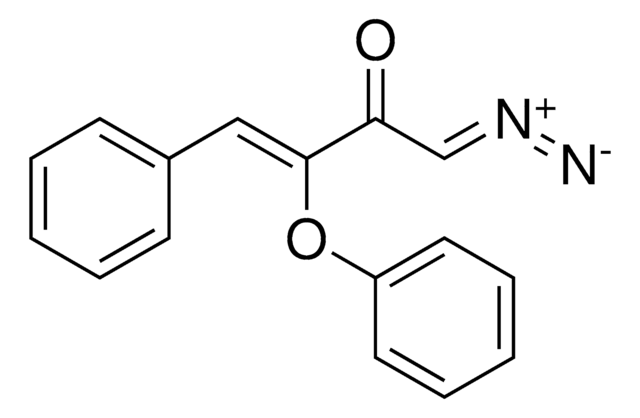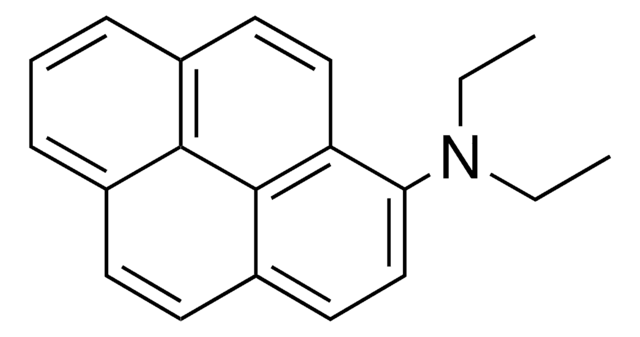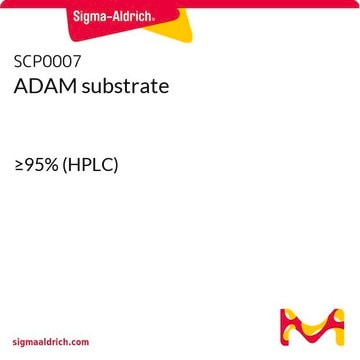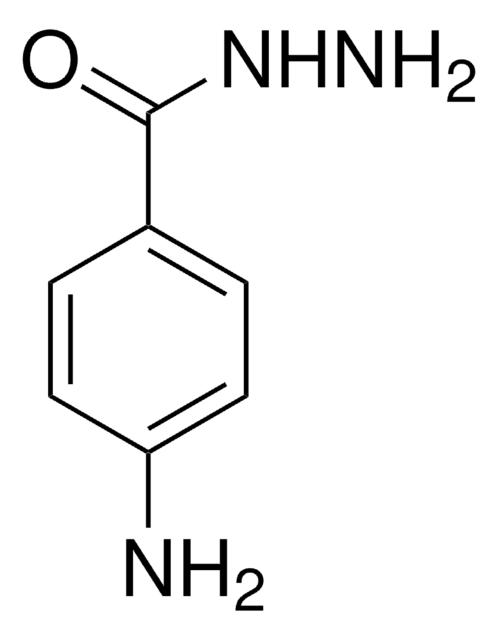P6863
PDAM
≥70% purity (HPLC), for HPLC derivatization, solid
Sinónimos:
1-Pyrenyldiazomethane, Pyrene, 1-(diazomethyl)
About This Item
Productos recomendados
product name
PDAM, for HPLC derivatization
grade
for HPLC derivatization
Quality Level
assay
≥70% (HPLC)
form
solid
λmax
338-344 nm
fluorescence
λem 371-379 nm
application(s)
diagnostic assay manufacturing
hematology
histology
shipped in
dry ice
storage temp.
−20°C
SMILES string
[N-]=[N+]=Cc1ccc2ccc3cccc4ccc1c2c34
InChI
1S/C17H10N2/c18-19-10-14-7-6-13-5-4-11-2-1-3-12-8-9-15(14)17(13)16(11)12/h1-10H
InChI key
PEIBAWRLFPGPAT-UHFFFAOYSA-N
Categorías relacionadas
Application
Storage Class
11 - Combustible Solids
wgk_germany
WGK 3
flash_point_f
Not applicable
flash_point_c
Not applicable
ppe
Eyeshields, Gloves, type N95 (US)
Elija entre una de las versiones más recientes:
Certificados de análisis (COA)
¿No ve la versión correcta?
Si necesita una versión concreta, puede buscar un certificado específico por el número de lote.
¿Ya tiene este producto?
Encuentre la documentación para los productos que ha comprado recientemente en la Biblioteca de documentos.
Nuestro equipo de científicos tiene experiencia en todas las áreas de investigación: Ciencias de la vida, Ciencia de los materiales, Síntesis química, Cromatografía, Analítica y muchas otras.
Póngase en contacto con el Servicio técnico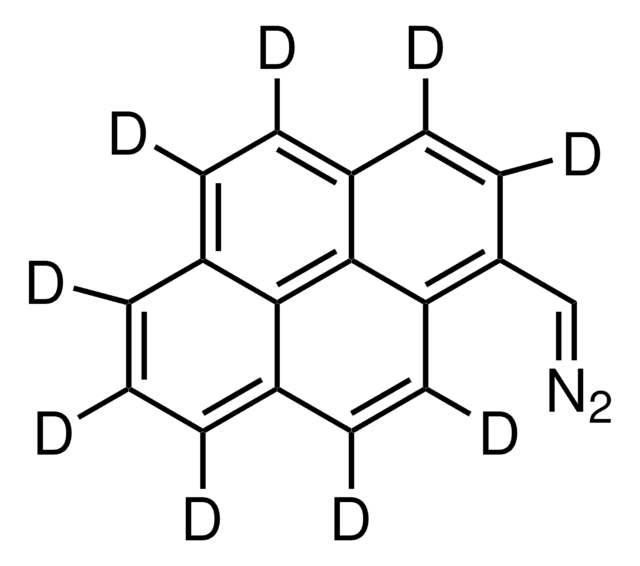

![Benzo[k]fluoranthene for fluorescence, ≥99%](/deepweb/assets/sigmaaldrich/product/structures/277/320/3e615f9f-3887-40f6-b176-bc1eb9b4832c/640/3e615f9f-3887-40f6-b176-bc1eb9b4832c.png)
